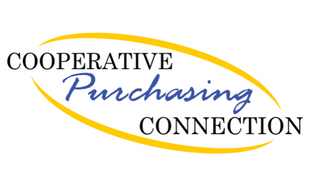If our SFA chooses to participate in the small wares and ware wash categories, will I have to commit to purchase 75% of those items as well?
In regards to small wares and ware wash, no, an SFA will not be required to purchase 75% as they would with food and distribution. However, if the SFA chooses not to utilize the awarded vendor, the SFA would need to procure each item per USDA and State procurement regulations as they would be using school nutrition dollars.
Where do the focus groups meet?
CPC will try to minimize the amount of travel expenses incurred by focus group participants. CPC will review each states conference and training schedules to determine if we can connect during those occasions face-to-face to collaborate. Otherwise, CPC plans to conduct the focus groups via webinar, conference calls, and email communication.
Do you always send out bids no matter the dollar amount?
Yes. CPC always conducts the formal, sealed RFP process to ensure that all members are protected no matter their spend.
Can we use local vendors?
Yes, you can utilize local vendors as long as you are following local, state and federal food procurement guidelines.
Is there any cost to participate in this program?
If your school is a member of the local service cooperative, you have access to all of the Cooperative Purchasing Connection contracts, including food service with no additional membership fee. The only requirement we have is signing the Letter of Commitment.
MDE requires us to select a vendor by May 15th, should this process not begin earlier?
The RFP solicitation process will occur during the 2017-2018 school year, for a contract term starting July 1, 2018, and running through June 30, 2019. Per the timeline, we plan to have an awarded vendor and the contract executed by April of 2018, meeting the May 15, 2018 deadline to notify MDE.
Do you take into consideration the items that are rebate eligible and NOI?
This is an area that we hope to focus on with this upcoming RFP process with the focus groups. However, in Minnesota, there are schools that are on both programs and from our research the products are not similar. We’ll continue to work with the focus groups to determine how to best utilize commodities within both programs.
Do you feel this is beneficial for very small schools?
Yes. Whether your large or small, joining the solicitation process/program will not only provide your school with soft cost savings but also do not need to worry about meeting procurement regulations at the federal and state level. As we aggregate volume across the state, the more volume that runs through the contract the greater the discount you’ll receive from the manufacturers. The discounts received as a group are significantly higher than what most districts can obtain on their own.
How do we get the Audit Packet? Do we have to request it?
Audit packet requests can be sent to Lisa Truax, Bid and Contract Facilitator at [email protected].
How many years will this RFP cover?
USDA regulations allow for a single contract term that can be renewed for an additional four, one year contract terms. However, the State of Minnesota allows for a single contract term with the ability to renew that contract for an additional three years. Please see the timeline below for more detailed information.
2017-2018: RFP Process
2018-2019: 1st contract term
2019-2020: 2nd contract term
2020-2021: 3rd contract term
2021-2020: 4th contract term and new RFP process
Does each cooperative go through the RFP process or do they all go through LCSC?
The eight service coopeartives in Minnesota that have banded together to provide cooperative purchasing contracts to its members, they have also delegated Lakes Country Service Cooperative to provide the “back office” support for the Cooperative Purchasing Connection. LCSC handles the solicitation process, manages the contract, submits the legal notices, all with input from each of the participating service cooperatives. Participating service cooperatives include:
- Lakes Country Service Cooperative (LCSC), Fergus Falls, MN
- Metro ECSU (METRO), Arden Hills, MN
- Northeast Service Cooperative (NESC), Mt. Iron, MN
- Northwest Service Cooperative (NWSC), Thief River Falls, MN
- Resource Training and Solutions (RESOURCE), Sartell, MN
- South Central Service Cooperative (SCSC), Mankato, MN
- Southeast Service Cooperative (SSC), Rochester, MN
- Southwest/West Central Service Cooperative (SW/WC), Marshall, MN
So, essentially all of the service cooperatives and its participating SFAs who join this program will all participate in one single competitive solicitation. Based on the number of participants and their location, CPC, along with input from the focus groups may break the state down into smaller service regions to gain more competitive pricing in case distributors are not able to service an entire state.
Is there anyway CPC can do the procurement for milk products like they do bread and food service?
CPC has talked at quite a few levels about offering the solicitation process for milk products. If we can aggregate enough schools that are willing and wanting to participate, CPC would be willing to provide such a program to participating schools.
How many schools are currently a member of this RFP?
CPC has a current program that is entering it’s last contract term for the 2017-2018 school year. There are over 65+ Minnesota schools that participate in the school food service program. We hope to grow the program with the upcoming RFP.
